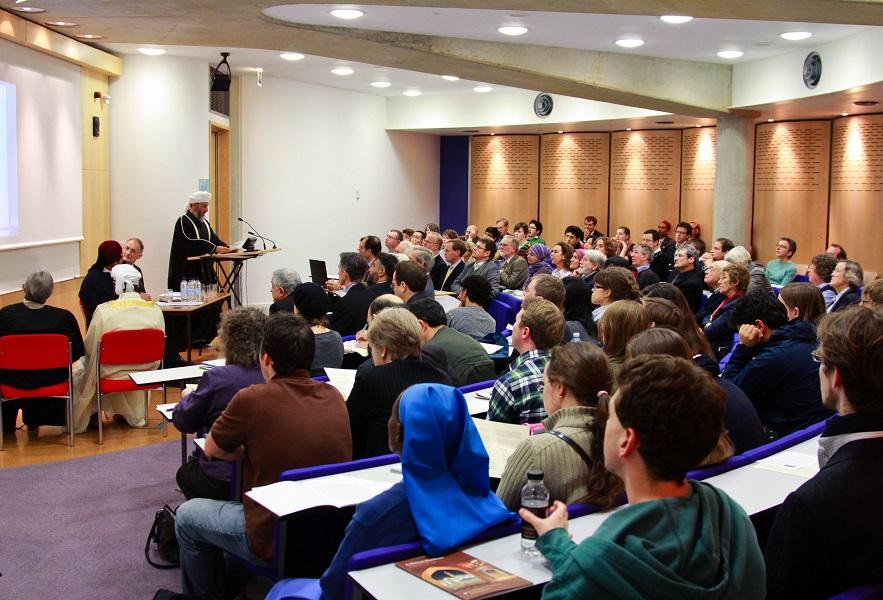
CIP is committed to bringing academic researchers, faith leaders, policymakers, and other members of society into productive conversation with one another.
Our team host and support a wide range of public engagement and knowledge exchange activities each year. These include roundtable discussions, public lectures, exhibitions, workshops and conferences. We also develop resources that can be used independently.
Underpinned by research
Activities and resources normally stem from our research or intersect with active research projects. Some recent examples include:
Religion & Water
Workshops on Water and Religion formed part of our involvement in the Ofwat-funded project Water efficiency in faith and diverse communities.
Findings from four months’ of research in and around Cambridge can be downloaded in the 42-page report, Water and/in Religious Relations.
Some of the tools employed during this work are now being tested with other audiences, as part of our EDI-Q package (beta-testing is available to partners).
Scripture and Violence
CIP researchers ran workshops and created resources to help people interrogate the relationship between religion and violence, with a focus on violent-seeming passages from Christian, Jewish and Muslim scriptures.
This area of work began with an academic conference, applying Scriptural Reasoning practices to the topic. Free resources are available to supplement an edited essay collection and for independent small group use.
Access discussion resources online at ScriptureAndViolence.org.
Shared Sacred
In Southern Bosnia, remembered histories of shared space and rituals act as a corrective to ethno-nationalist ideologies. Inspired by this observation, this multi-stranded engagement initiative invited anthropologists to share photographs illustrating the possibility and reality of “shared sacred space”.
CIP curated a series of linked events to showcase the results. An online panel discussed images at the 2021 Cambridge Festival: “An interfaith picture is worth a thousand words” (available to watch on YouTube). A digital exhibition is hosted on a dedicated website: View the exhibition at SharedSacred.com.
In practice
Scriptural Reasoning
One of CIP’s most significant legacies is the development of Scriptural Reasoning (SR). Together with academics at the University of Virginia (notably Peter Ochs) and elsewhere, Cambridge had a leading role in creating this inter-religious practice. Using passages from different religious texts as the starting point, Scriptural Reasoning brings people into dialogue.
Scriptural Reasoning has been used in prisons, hospitals, and schools as a method for opening up new conversations, bridging hostilities, and enabling learning about self and other.
CIP runs regular sessions for those in the Cambridge area, normally advertised in our event listings.
Browse our Scriptural Reasoning resources.
In partnership
Meaningful engagement is carried out collaboratively, with partners in a range of external organisations.
Visit the Partners Hub for more about our ways of working and how new organisations can connect with CIP.
